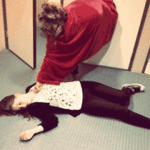Digital evaluations filled in more often
In 2014, the RUG switched from providing course evaluations on paper to providing them online. These student assessments are an important means for ensuring the continued quality of university education, but for years, students were rarely doing them. The transition to digital evaluations has been a game changer: since the switch, the percentage of students filling in the surveys has risen from 10 to 30 per cent.
Lousy
The fact that only one in ten students was filling in the surveys before was largely a matter of timing, according to RUG director of education Luuc Bruyning. ‘That was obviously lousy’, he says. ‘You had just completed your exams and then you still had to stick around to fill in this stupid evaluation.’ It also became apparent that how the exam itself went influenced the students’ opinions, which meant that the assessments were often artificially positive or negative.
Both problems have been solved with the transition to online evaluations. Bruyning believes that the digital evaluations are more accessible and less time-consuming. Instructors set aside time in the final week of courses for the students to fill them in, and the survey takes roughly eight minutes to complete on a laptop, smartphone or tablet.
Fifteen questions
But Wander Lowie, head of the educational committee for English language and culture, sees that there is still a lot of ground to be gained. He proposes that a response rate of closer to 50 per cent would be ideal. Lowie also feels that the course evaluations should be more specific. Currently, the surveys all consist of the same 15 questions, which yield little useful feedback for the instructors.
‘It remains a quantitative quality control method which is not specifically focused on improving education’, Lowie says. Now that the response rate to the traditional surveys has increased, he says that now is the time to consider alternatives which have something more substantial to offer.






